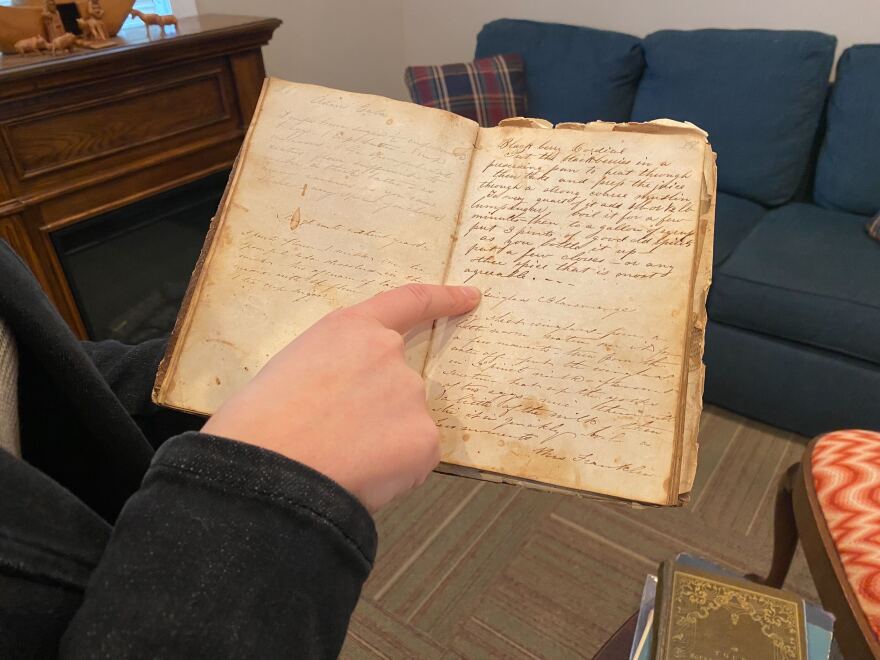Genealogy and reference librarian Erin Moulton is used to going through historical records for her work at the Derry Public Library. But her work took a delicious turn one day when she came across an old community recipe book from 1889 made by women in the Derry community.
She decided to try to make one of the recipes, “Mrs. Darling’s Lemon Pie,” and then find out more about Mrs. Darling herself. Using census records and newspaper archives, Moulton was able to piece together Laura Darling’s life – a woman who ran a boarding house in Derry and had an orange cat named Ikey. Darling divorced her abusive husband and dreamed of traveling out west although she spent the rest of her life in New Hampshire.
The research experience inspired Moulton to continue learning about historical women through their recipes.

“I think sometimes we see that women aren't really on the record as much – definitely as we get farther back,” Moulton says. “And community cookbooks can be one of the only starting points for them.”
Now Moulton teaches other people how to use cookbooks as a starting point for archival research. At a recent meeting of the Bedford Women’s Club, Moulton presented her techniques for tracking the identities of recipe authors.
For Susan Moreau, the Bedford presentation made her want to revisit a cookbook that displays her family genealogy and recipes from her French-Canadian family that came to Manchester to work in the mills.
“It has the genealogy of my grandfather in the front of the book, as well as a picture of when [my grandparents] got married,” Moreau says. “So it kind of rejuvenates you a little bit to say, ‘Oh, I'm going to reconnect again with all of those family recipes.’”
Moulton says that even though people in local history – like Laura Darling with her lemon pie – weren’t famous, they still deserve attention.
“I'm a stickler about visibility, [myself] having ancestors who are just kind of discarded, especially women ancestors who were discarded,” Moulton says. “So giving them a little bit of a platform and a little bit of a voice, regardless of if they made the front page of the historical newspapers, is really important.”



